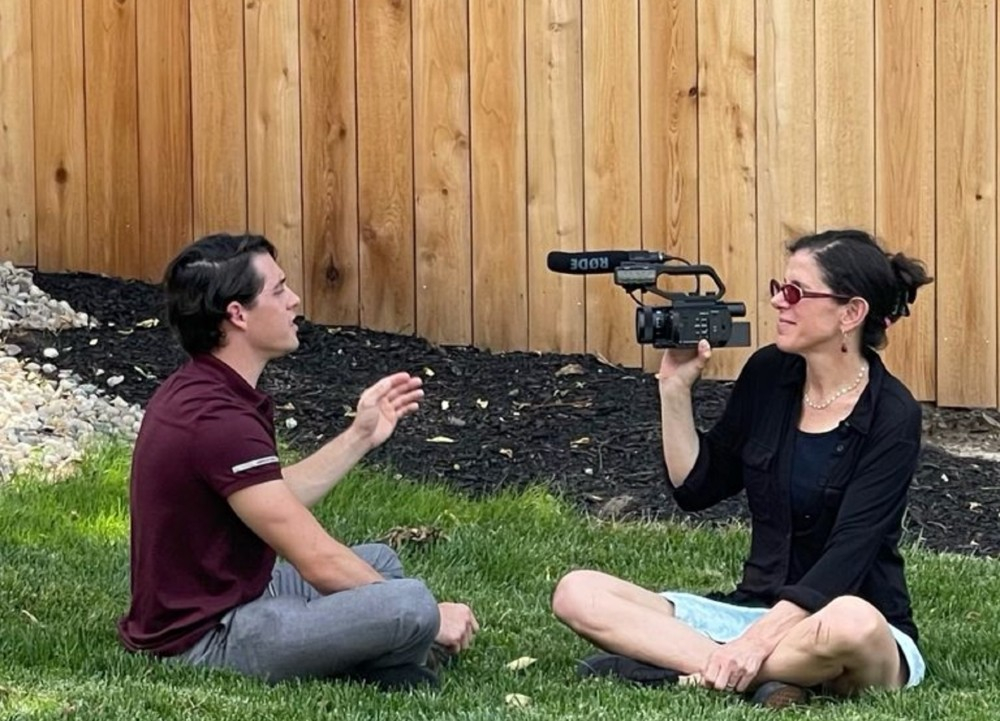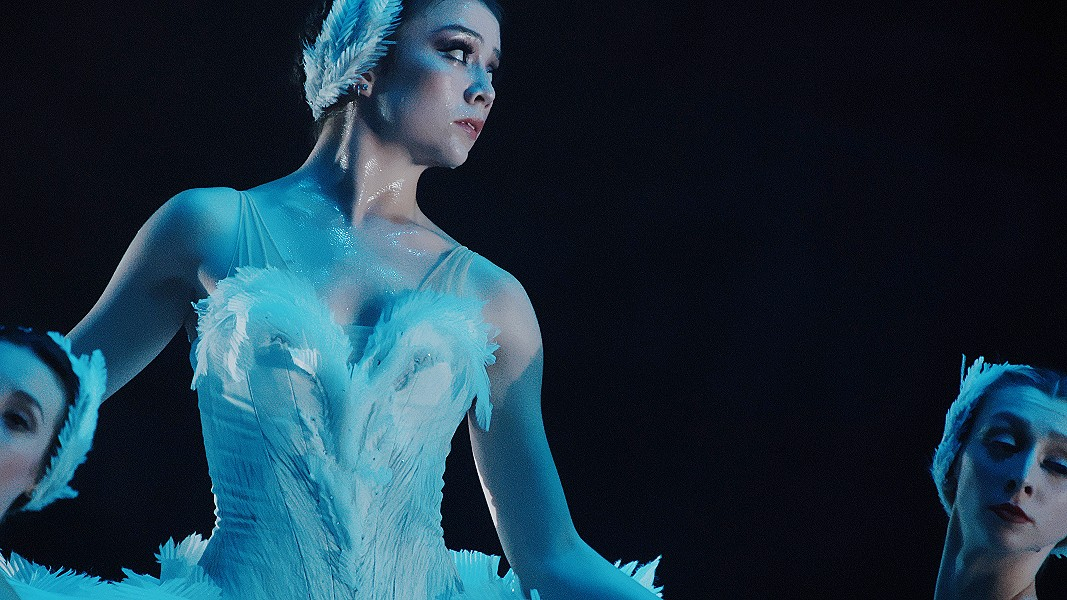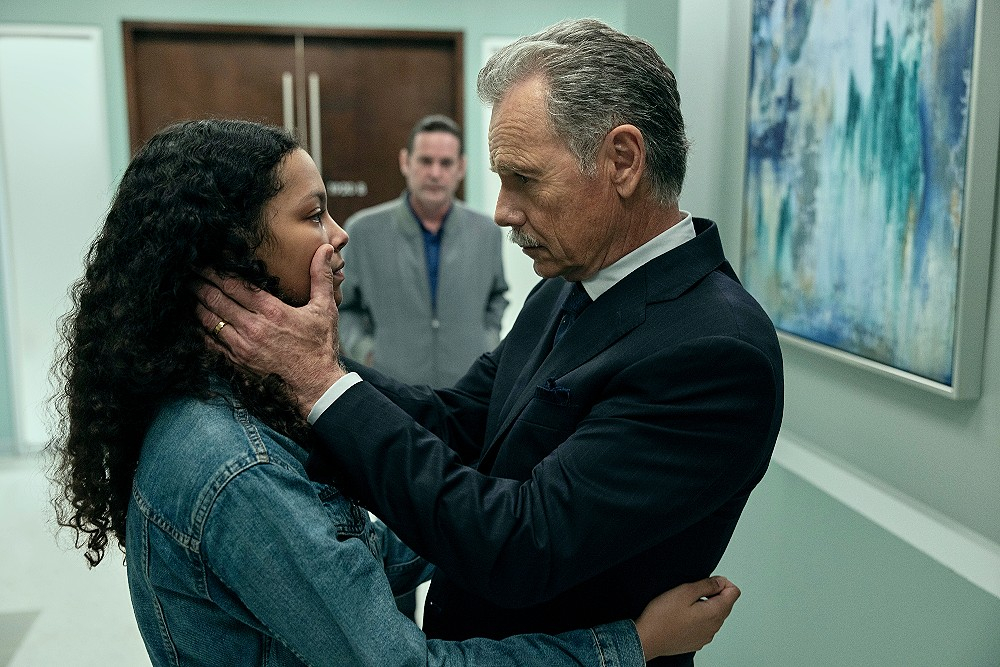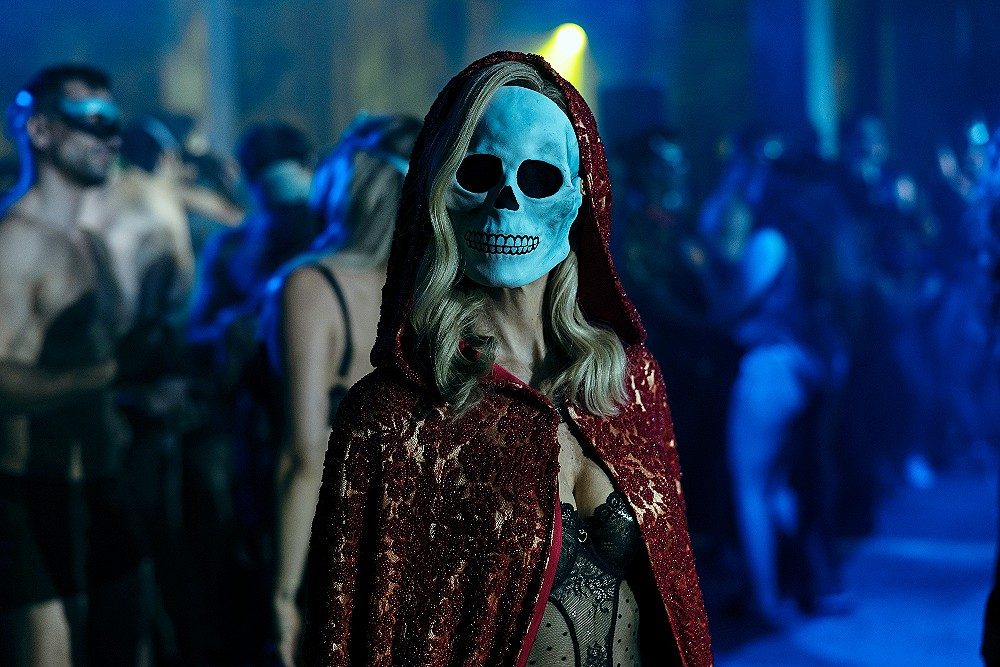The big film this week is Taylor Swift's concert film of her Eras Tour. It's going to be huge, playing in over 4,000 theaters and already a giant ticket seller. She produced it herself and didn't make it widely available to critics so as of last night I only saw one legitimate review on line. Kristen Lopez at The Wrap called it “A Bombastic Celebration of Joy and Color”. She saw it at the Los Angeles premiere, said it's 3-hours long and got people dancing in the aisles.
Culture also figures in other new films this week. Swan Lake is restaged by Karen Kain, Joan Baez tells secrets from her life and Edgar Allen Poe gets a major reworking on Netflix.
But lets start with history: what the “insurrectionists” who stormed the US Capitol were thinking.
The Insurrectionist Next Door: 4
Swan Song: 3½
Joan Baez I Am a Noise: 4
The Fall of the House of Usher: 3
THE INSURRECTIONIST NEXT DOOR: We've seen the Jan 6 Capitol Building storming in several films now, analyzed from just about every angle and every point of view. Here's a fresh take on it though, directed by former Speaker of the House Nancy Pelosi's daughter, Alexandra. It's her 15th documentary for HBO and it's dazzling to watch because she talks to some 10 people who were part of the mob that day and gets personal descriptions of what they did and how they feel now. Best of all she challenges them, argues with them at times, even saying this to one: "Did you go there to assassinate my mother?"

One ripped the name plate off her mother's door. One assaulted two security guards. One claims he's remorseful and several claim they got swept up in "a mass hysteria event" that "got out of hand." That's been said before but here we get stories and cell phone video from several on how they got drawn in. For one it was after he was "betrayed by a woman". One was "tired of not being heard" and one backed Donald Trump because "he reminded me of how real people are." We do get a pretty good understanding of motivations and even after prison sentences or house arrest, not many express regret. A U-Tube rapper for instance followed up with a virulent anti-Biden song. And there are contradictions. One, who joined the Aryan Brotherhood in prison, had voted for Obama. Only 75 minutes, but packed with stories. (Starts streaming Sunday on CRAVE). 4 out of 5
SWAN SONG: The best of the create-a-show movies take you into the process and the hard work and churn up a strong wave of anxiety as the big day approaches. This film by Chelsea McMullan does it beautifully, counting us down from 6 weeks to go, to 5 days, to 4 hours and then the grand opening. The fact that Karen Kain has so much riding on it, makes it even more weighty. She was with the National Ballet of Canada for 50 years, became internationally famous as a dancer, then company director, and took on this task: the first production she personally directed. It's her farewell project. What's more, Swan Lake is universally-known. What new could she bring to it?

It looks like she did it, though. I know little about the world of ballet but I get that impression watching the rehearsals. Rothbart, for instance, does more than transform a princess into a swan, he has a whole pond of them that he holds prisoner. He represents the evil that men do. That's Kain's view and she has her choreographer stage it that way. We see a lot of worry about details, where exactly the dancers in the rear are positioned, how racially-sensitive should skin-tone costumes be, and more. Tension mounts. A Russian ballerina disagrees with Kain over some matter. One dancer needs injections. Two days to go and some use words like “chaotic” and “stressful.” The mood is intense and we hope for a joyous opening. (theaters, in 5 cities now, 6 more soon) 3 ½ out of 5
JOAN BAEZ I AM A NOISE: You've heard her music. She always seemed quite serene. Listen again. In this documentary she tells what her life was really like. Much of that was new to me. Sure, her early association with Bob Dylan is here, but how it ended is new. He broke her heart she says. He left her behind as he became a big star and she remained “a little folkie … who didn't belong.” That added to a feeling of inadequacy and inferiority that she had had for as long as she could remember. And she recalls a lot, her work in the civil rights movement, for instance, And this: “A powerful lot of anger lurking just under my big smile.”

That and other recollections are in a series of notes and cassettes she sent her mother, who saved them all and that gave access to the filmmakers Miri Navasky, Maeve O'Boyle and Karen O'Connor to her most intimate feelings of long ago. There are secrets (drug use and what seems like a gay interlude) and then the most remarkable part of the story: therapy, which produced this evaluation: “She seems emotionally sick most of the time … she has left the normal world.” There were recovered memories about abuse from her father. False memory syndrome? “I can't prove anything,” she says but the drama of it all is stunning. There's music too, of course, from concerts in five countries. A very strong, candid and moving film. (Theaters, already in Toronto, tomorrow in Vancouver, more to come) 4 out of 5
THE FALL OF THE HOUSE OF USHER: Edgar Allen Poe's short story gets a major updating in this Netflix series. And a serious lengthening. There are eight episodes, about an hour each, and I've seen two so far. They're classy in presentation and well acted but much has changed. It's no longer 1839; it's 2023, set in Los Angeles (with Vancouver standing in) and the Usher family far different than what we've read or seen before. That includes the fine 1960 movie that starred Vincent Price and kicked off a run of Poe adaptations. The Ushers here own a pharmaceutical company that sells an opioid they claim is not addictive. It's a money-maker though, and the Food and Drug Administration is looking hard while some test trials are not going well and a court case offers to produce an informant from with the company.

Bruce Greenwood as Roderick Usher is struggling with the predicament. From the start he's being interviewed by a police investigator and so, most of what we see is likely a long flashback. His six children have all died as adults and we get their stories one by one. He claims responsibility for their deaths but doesn't say why or how. His powerful influence may be the cause. That's to come; so far it's not clear, but a critic I know what has seen the whole series, says the final episode explains all.
Many of Edgar Allan Poe's usual elements are here, family decline, deep anxiety, fear of being buried alive and people who reappear as spirits after they die.

Director Mike Flanagan works them all in, adds story bits and names from other Poe Stories, and names each episode after one. Among the actors are Mark Hamill, Carla Gugino and Mary McDonnell. It's a clever reworking but I'll wait til the end to decide if its more than an academic exercise, eerie and mysterious though it is. (Netflix) (#1 + #2: 3 out of 5)


Comments